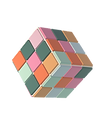
Willkommen,
Bienvenue,
WELCOME!
This website is still useful:
https://www.puresight.com/Cyberbullying/dos-and-donts-for-cyber-bullying-victims.html
Library, IES Västerås
Did you know...
...that most of your learning happens when you are not in class?
That does not mean that you do not have to go to class to learn, but it means that your brain is constantly thinking about what you have heard, and it assimilates the new knowledge into what you already know.
So, it really means that if you do not pay attention in class, your brain will have nothing to think about, especially at night when you are busy sleeping. And an empty brain makes for an empty mind...
Body and Mind
There are various ways to learn and the Library can help with most of them.
There are student computers available to you, with some really good tools.
Books, of course! The Librarian is especially proud of the Sciences Sections, where you can find good reads about the natural sciences and social sciences.
The Library can help you with getting support and books in your mother tongue. Just let the Librarian know what you need.
Your Librarian is a very curious person and if there is something you need help to find out, help is happily given.
If reading is not your strongest skill, the Library can provide you with creating an account at Legimus, where you can listen to a book as you read it.
Good Study
Habits
-
Study every day (and do your homework)
-
Create a quiet place at home to study.
-
Turn off the phone, TV, and other devices that may disturb you when studying.
-
Listen to soft music or other white noise.
-
Study in a way that suits your learning style.
-
-
Take regular breaks, like 5 minutes every half hour.
-
Study early (don't wait until the last minute).
-
Study the hardest things first and then move on to easier ones.
-
Spend the most time on things that you find most difficult.
-
Ask for help if you are struggling with something. You can now book 20 minutes with the Librarian.
-
Take notes as you study, using your own words to simplify complex concepts.
-
Organise your notes in a notebook or folder.
-
Look at your notes on a regular basis.
-
Make connections between the topics you are studying and the topics you have already mastered. Everything is connected.
-
Take practice tests, so you don't panic when it's time for the real test. There are quizzes on most topics in the Library-
-
Keep track of your study progress using an online program or notebook.
-
Give yourself a pat on the back after a good study session.
-
Quiz yourself about what you just studied.

Brain food
-
Avocados: Avocados contain the good kind of fat which the brain needs to process information.
-
Beets: Beetroots contain inflammation reducing antioxidants and also natural nitrates to boost the blood flow to the brain. Brilliant before a test!
-
Blueberries: Blueberries do not only give you lots of healthy exercise while picking them, but also vitamins C and K and plenty of fibre.
-
Bone broth: The ultimate healing soup for your stomach and brain.
-
Broccoli: We all secretly love it, really. Our bodies and our brains do, anyway.
-
Celery: Rich in flavour and vitamins with hardly any calories, this is a winner for your brain!
-
Chocolate: Dark chocolate is better for you than milk chocolate, and it is very flavoursome. It also increases the blood flow to your heart and to your brain.


It is also a fact that taking breaks from a subject helps your brain to retain knowledge. When you take a break, the brain is still pondering the new pieces of information. When you get back to the subject, you will remember some things, which makes the brain feel at home, and you can carry on learning from there.
Reading poetry is not only fun, but it is a brilliant exercise for your brain. Reading poetry increases your reading comprehension, your language skills and your level of well being.
Press the button to reach poets.org and read old and new poems.
